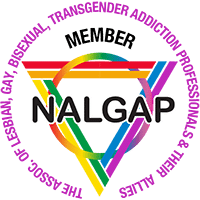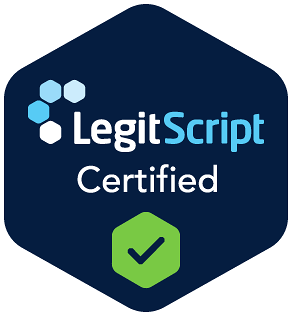Heroin Addiction Treatment, Denver
If you or a loved one is struggling with heroin use in Denver, our compassionate program offers the support needed to rebuild and move forward with confidence.
Heroin Addiction Treatment in Denver, CO
At Mile High Recovery Center, we understand the devastating grip heroin addiction has on individuals, families, and communities. Our residential treatment program in Denver provides a compassionate, structured environment where clients can begin their recovery journey while receiving comprehensive care that addresses the physical, psychological, and spiritual dimensions of heroin dependency.
Our approach is founded on the belief that complete healing from heroin requires both clinical excellence and genuine human connection. Through carefully crafted treatment plans that combine medication-assisted treatment, evidence-based therapies, and holistic practices, we help clients manage withdrawal symptoms, address underlying trauma, and develop the coping skills necessary for sustainable sobriety. We’re committed to walking alongside you as you rebuild your life and discover the freedom and joy that exists beyond heroin addiction.
Understanding Heroin Addiction
Heroin addiction is a complex and powerful condition that affects the brain, body, and behavior. This potent opioid targets the brain’s reward system, flooding it with dopamine levels far beyond what natural experiences can produce. With continued use, the brain adapts by reducing its own dopamine production and altering neural pathways, leading to profound changes in motivation, pleasure response, and decision-making abilities.
Addiction to heroin isn’t just physical – it’s also deeply psychological and emotional. Many individuals begin using heroin as a way to cope with trauma, stress, or untreated mental health conditions. What starts as a temporary escape can evolve into a cycle of dependence that impacts every area of life, from personal relationships to employment and overall health. Understanding the underlying reasons behind the abuse is essential for effective treatment.
With the right care and support, full recovery from heroin addiction is more than possible. At Mile High Recovery Center, we’ve guided many people through the healing process and helped them rediscover a life beyond addiction.
Benefits of Therapy in Heroin Addiction Treatment
Professional therapy is a vital part of successful heroin addiction recovery, offering a safe, structured space for healing and long-term change. In a supportive therapeutic setting, individuals can explore the emotional roots of their heroin use and begin to build healthier ways of coping with life’s challenges.
Some key ways therapy supports heroin addiction recovery:
- Identifying emotional triggers and learning to respond to them in healthy, non-destructive ways
- Addressing past trauma that may have contributed to drug use
- Increasing awareness of cravings and learning to pause before reacting
- Developing tools to handle high-risk situations without turning to heroin
- Receiving ongoing support and accountability throughout recovery
Whether you’re taking your first step or rebuilding after a relapse, our heroin addiction treatment program offers expert guidance and proven techniques to help you break free from heroin addiction and move toward a meaningful, sober life.
Need residential treatment for addiction?
Take the first step towards recovery today.
Our team is ready to help you reclaim your life. Call now!

Why Choose Mile High Recovery Center for Heroin Addiction Treatment?
At Mile High Recovery Center, we offer a structured and empowering path to healing from heroin addiction-right in the heart of Denver. Our personalized treatment programs are designed to support both the physical and emotional recovery process, helping you reclaim your life with confidence and clarity.
Our approach is:
- Evidence-Based & Holistically Integrated: Our treatment combines scientifically validated therapies including CBT, trauma-informed care, and neurobiological approaches with holistic practices that support healing across mind, body, and spirit.
- Compassionate & Recovery-Informed: Our specialized team delivers individualized care within a nurturing therapeutic environment-drawing from both clinical expertise and authentic understanding of the recovery journey.
- Accepting & Non-Judgmental: We approach rehabilitation with deep empathy and zero stigma, creating a safe space for honest healing regardless of your background or history with substance use.
- Community-Embedded: Our Denver-based program connects you with a robust recovery network, therapeutic outdoor experiences, and ongoing support resources specifically designed for sustainable long-term freedom from heroin dependency.
Surrounded by Colorado’s natural beauty, our heroin addiction treatment center offers the ideal space to heal, reflect, and rebuild. Here, you’ll rediscover your strength and take the first steps toward a heroin-free life.
- Family Therapy
- Cognitive Behavioral Therapy
- Dialectical Behavior Therapy
- EMDR Therapy
- Adventure Therapy
- Relapse Prevention Therapy
- Group Therapy
- Acceptance And Commitment Therapy (ACT)
- Person-Centered Therapy
- Experiential Therapy
- Motivational Enhancement Therapy
- Psychotherapy
- Anxiety Treatment
- Bipolar Disorder Therapy
- Schizoaffective Disorder Treatment
- Alcohol Addiction
- Cocaine Addiction
- Benzodiazepines Addiction
- Opiate Addiction
- Stimulant Addiction
- Suboxone Addiction
- Vivitrol Addiction
- Ecstasy Addiction
- Xanax Addiction
- Hydrocodone Addiction
- Fentanyl Addiction
- Opioid Addiction
- LSD Addiction
- Marijuana Addiction
- Methamphetamine Addiction
- Ritalin Addiction
- OxyContin Addiction
Colorado Rehab | Real Recovery Stories
Resources
- https://nida.nih.gov/publications/research-reports/heroin/overview
- https://www.npr.org/sections/health-shots/2015/01/05/371894919/what-heroin-addiction-tells-us-about-changing-bad-habits
- https://www.nytimes.com/interactive/2018/us/addiction-heroin-opioids.html
- https://www.cdc.gov/vitalsigns/pdf/2015-07-vitalsigns.pdf
- https://pubmed.ncbi.nlm.nih.gov/12076182/


- Family Therapy
- Cognitive Behavioral Therapy
- Dialectical Behavior Therapy
- EMDR Therapy
- Adventure Therapy
- Relapse Prevention Therapy
- Group Therapy
- Acceptance And Commitment Therapy (ACT)
- Person-Centered Therapy
- Experiential Therapy
- Motivational Enhancement Therapy
- Psychotherapy
- Anxiety Treatment
- Bipolar Disorder Therapy
- Schizoaffective Disorder Treatment
- Individual Therapy
- Alcohol Addiction
- Cocaine Addiction
- Benzodiazepines Addiction
- Opiate Addiction
- Stimulant Addiction
- Suboxone Addiction
- Vivitrol Addiction
- Ecstasy Addiction
- Xanax Addiction
- Hydrocodone Addiction
- Fentanyl Addiction
- Opioid Addiction
- LSD Addiction
- Marijuana Addiction
- Methamphetamine Addiction
- Ritalin Addiction
- OxyContin Addiction
- Prescription Drug Addiction
- Valium Addiction
Reach Out Today to See How Mile High Recovery Center Can Help You Heal
If you or a loved one are ready to regain autonomy over your lives and well-being, recovery starts here. Let us guide you toward sustainable wellness and sobriety through our personalized treatment plans tailored to your unique needs and experiences. We look forward to hearing from you!


